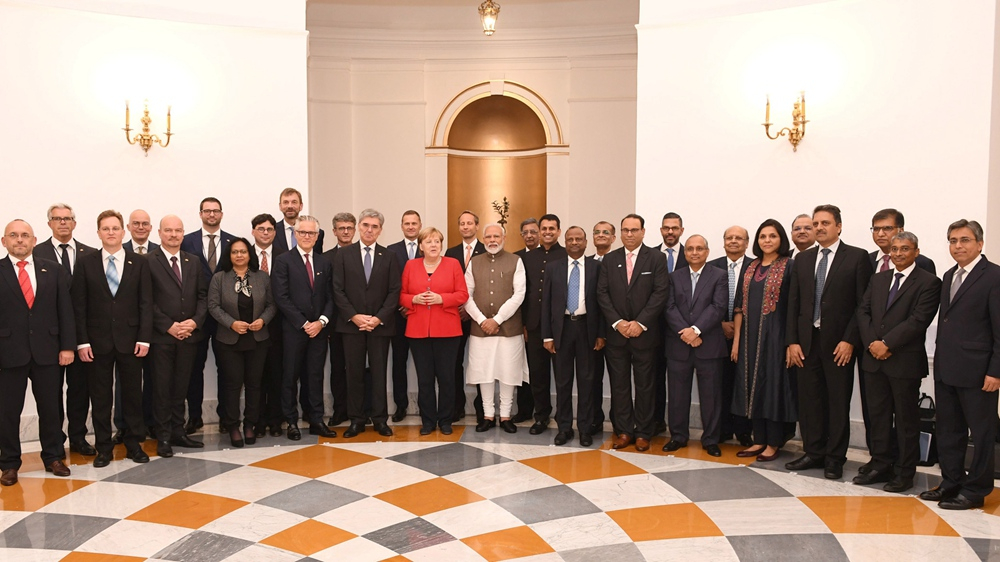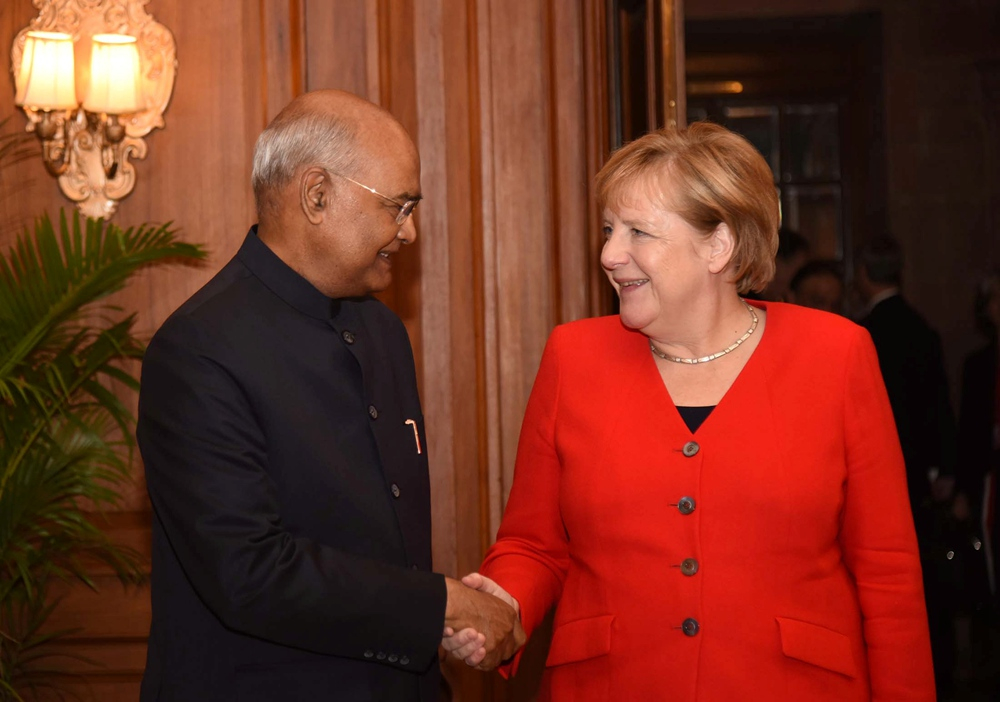
German Chancellor Angela Merkel and Indian Prime Minister Narendra Modi pose for a group photo with the business leaders at the Hyderabad House in New Delhi, India, November 1, 2019. /Reuters Photo
German Chancellor Angela Merkel and Indian Prime Minister Narendra Modi pose for a group photo with the business leaders at the Hyderabad House in New Delhi, India, November 1, 2019. /Reuters Photo
German Chancellor Angela Merkel concluded her three-day visit to India by announcing more than one billion U.S. dollars to be spent on green mobility projects over the next five years. These projects will be carried out under the Germany-India partnership.
Climate change and trade were top on the agenda during this visit. A free trade agreement with India has been a long pending demand of Germany. Merkel said: "We need a fresh attempt at a European-Indian free trade agreement."
Bilateral trade between the two countries rose to 24.06 billion U.S. dollars in the 2018/19 fiscal year ending in March from 22 billion U.S. dollars the previous year.
During the visit, Germany and India signed 17 agreements and five joint declarations of intent in fields spanning space, civil aviation, maritime technology, medicine, yoga and education.
Indian Prime Minister Narendra Modi said: "We invite Germany to make the most of the defense manufacturing opportunities in the defense corridors of Uttar Pradesh and Tamil Nadu states."
A memorandum of understanding has also been signed in the field of occupational diseases, rehabilitation and vocational training of insured persons and workers with disabilities. Another pact was signed for cooperation in inland, coastal and maritime technology.

German Chancellor Angela Merkel (R) shakes hands with Indian President Ram Nath Kovind during their meeting in New Delhi, India, November 1, 2019. /Reuters Photo
German Chancellor Angela Merkel (R) shakes hands with Indian President Ram Nath Kovind during their meeting in New Delhi, India, November 1, 2019. /Reuters Photo
Merkel said: "We find different areas of cooperation in these documents that are artificial intelligence and digital transformation. India has a huge potential here, especially when it comes to digitalization but the development is very fast when it comes to 5G and AI (artificial intelligence). It's a challenge and if we work together this would be a wonderful way of cooperation."
Underlining that Indo-German relations are progressing well, Indian President Ram Nath Kovind on Friday said they needed to strengthen cooperation in counter-terrorism and coordinate their positions at meetings of the Financial Action Task Force, an intergovernmental organization to combat money laundering.
Merkel and Modi stressed upon the need to strengthen bilateral and multilateral cooperation to combat terrorism and extremism. They co-chaired the fifth Inter-Governmental Consultations (IGC), calling on nations not to let their territory be used for terror activities against other countries.
"They emphasized the need for stronger international partnership in countering terrorism and preventing violent extremism, including through increased sharing of information and intelligence and in full compliance with the rule of law and international law, including human rights law and international humanitarian law," the joint statement by the two leaders said.
Independent India turn 75 years old in 2022. "We have vowed to build 'new India' by 2022 and expertise of technological, economic powerhouses like Germany will be useful for it," Modi said after bilateral meeting.
Merkel said: "We will be happy to engage in big infrastructure projects which India is envisaging."
Merkel had a packed schedule, her first day began with a ceremonial welcome at the Presidential Palace where Ram Nath Kovind and Modi greeted her. She paid tribute to the father of the nation Mahatma Gandhi. Apart from business delegations she also met a women leaders' delegation.